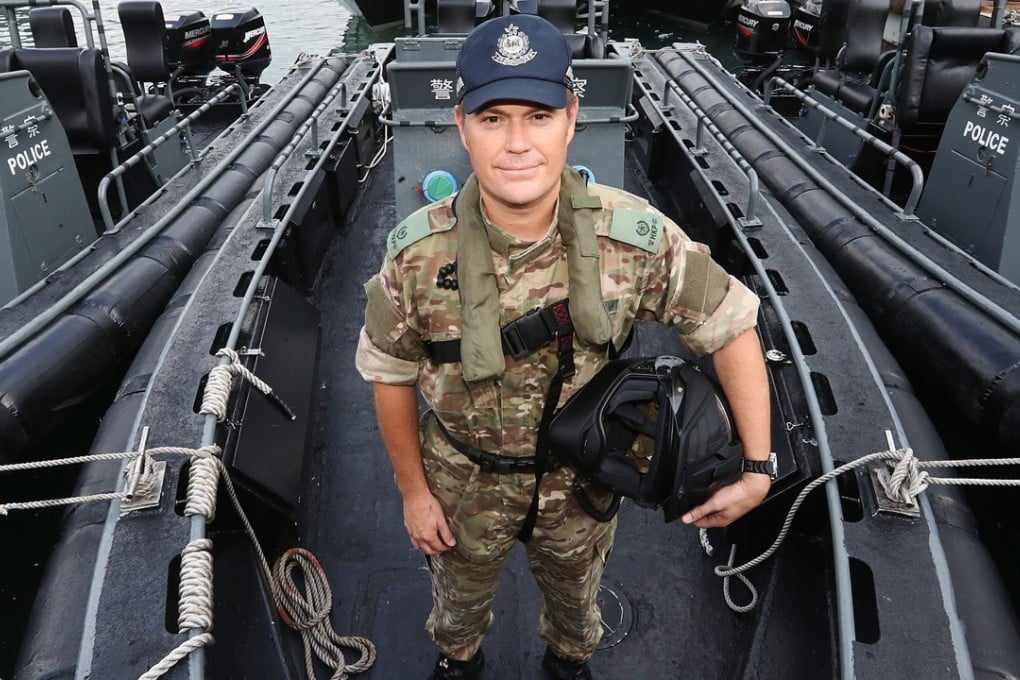‘No change since 1997: it’s still about providing the best service’, says Hong Kong’s last expat police officer
Briton Timothy Worrall reflects on his career in the force, and says he hasn’t given much thought to the fact his retirement will mark a major milestone

Cantonese colleagues call him dai lo, meaning “big brother”. A golden statue of the ancient Chinese god Guan Yu stands tall on his office desk.
No expat lives as a local like Timothy Worrall – the youngest serving foreign police officer in Hong Kong. Worrall is proud to call the city home, and it is the place he plans to retire.
“Where else can you go for siu yeh [late night meals] and wonton min [wonton noodles] at 11pm?” says the 44-year-old British superintendent from the force’s small boat division.
He is expected to be the last foreign officer to retire from Hong Kong’s police force, 10 years from now – a milestone that will mark the end of the era of expatriate officers in the 173-year history of the force.
The Worrall family came to Hong Kong before the second world war. His grandfather worked on coastal trading vessels and was interned by the Japanese at Stanley Internment Camp.
Watch: Hong Kong’s youngest expat police officer